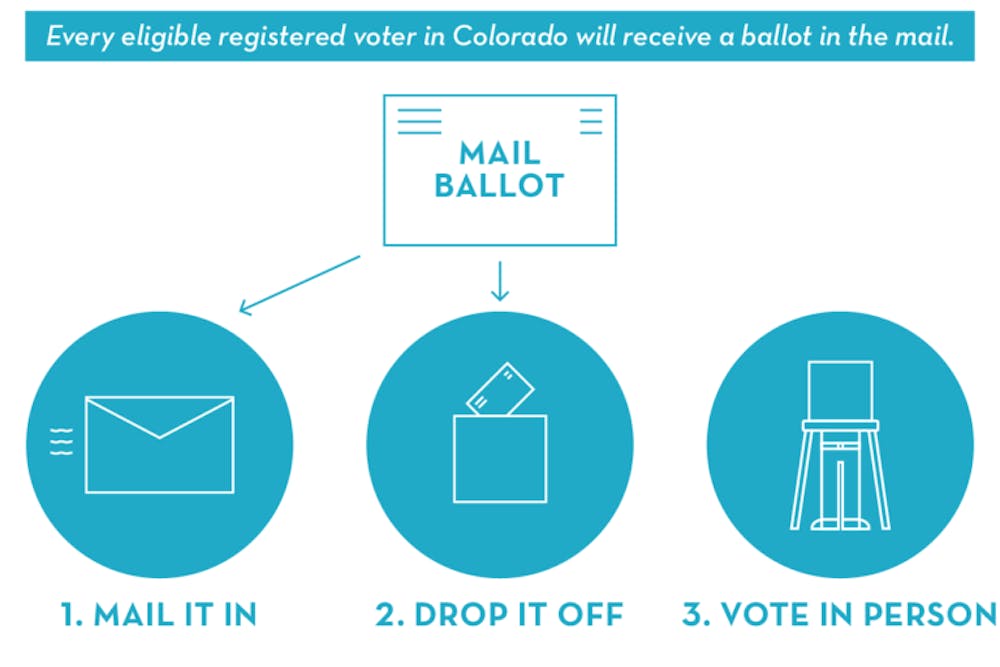The midterm elections approach and with it raises the question of voter turnout, especially among young people.
Two years after a divisive election that included a visit by the future president, Donald Trump, on the University of Northern Colorado campus, many wonder if the increased partisanship and looming political issues will drive people to the polls or away from them.
Young people, and people in general, do not participate in midterm elections in large quantities.
According to NonProfit VOTE, an organization dedicated to increasing voter participation, only 36 percent of total voters turned out for the 2014 midterms and only 26 percent of people under the age of 40 voted. Because they are not as glamorous or as simple as the presidential race, midterm voting typically has a lower turnout rate.
Even during election years, young voters participate in smaller proportions than older age groups. In the 2016 election, less than half of young adults voted, according to NonProfit VOTE.
UNC junior Anna Hutchinson falls into the category of individuals who did not vote in the 2016 election.
“I didn’t vote in the last election because my family is split politically,” Hutchinson said. “I really didn’t want to start a huge argument between them on who I would vote for. The whole thing just felt overwhelming. I knew how important voting was, but it just didn’t seem worth the trouble. Looking back, I really wish I had voted.”
For students who don’t vote, there is a certain stigma against them. Many do not feel comfortable discussing why they don’t vote because of the backlash they almost instantly receive.
In a survey of a UNC junior-level political science class, most students said they planned to vote or had already voted. Those who were not voting had many reasons, including feeling like their vote did not matter, that they had better things to do or that the ballot was too hard to understand.
With busy classes and work schedules, students who have chosen not to vote do so because they say they do not believe it is worth the extra effort.
UNC freshman Hezekiah Cotlong is a non-voter who says he feels fed up with politics.
“I didn’t vote because I don’t like my political options,” Cotlong said. “I don’t think my one vote would make a difference. If there were good politicians to vote for then maybe I would vote.”
Because of the low turnout rates for young voters, organizations like New Era Colorado work to register this specific demographic and increase their turnout at elections. In fact, Anna Wood, the regional organizing manager in northern Colorado for New Era, is a young voter herself.
“Young people do turn out less frequently than older generations,” Wood said. “We are also half as likely to be registered. That’s the big reason why New Era Colorado really works to make registering to vote as easy as possible for young people.”
Many factors influence the registration rates for young people. Wood described citizens feeling the partisan divide more than ever, with many feeling isolated from politics and exhausted by the lack of influence they have over it.
“What I would say to young people that are feeling that way is to focus on local and state level elections,” Wood said. “From a governor election to ballot initiatives that are going to impact our everyday lives, I really recommend young people take a look at those local and state level things.”
One factor Wood highlighted is how often students and young adults move. Colorado has a mail-in ballot system and ballots cannot be forwarded like other types of mail. Every time a Colorado resident moves, he or she has to update his or her voter registration.
According to Wood, young adult votes can make a difference.
“One in three voters in Colorado is under the age of 35, so young people have a lot of power in this state,” Wood said. “If we come out and vote in the numbers that we’re eligible in, we can really make a difference.”
New Era has registered 726 people at UNC this school year alone and about 82 percent of registrants turn out and actually get their ballots in. New Era has registered over 40,000 young people across Colorado this election cycle.
According to a survey done in partnership with The Atlantic, less than one in three young adults are certain they will be voting in the midterm elections. This is compared to three in four senior citizens.
Hutchinson said she will be voting this time around.
“I am voting in this election because I feel more confident on how I feel about political issues and feel responsible enough to make big decisions like that,” Hutchinson said. “I am very excited to vote in this election because I know I will be contributing my voice to the big picture. The only way to make changes is to start participating and I’m ready.”








